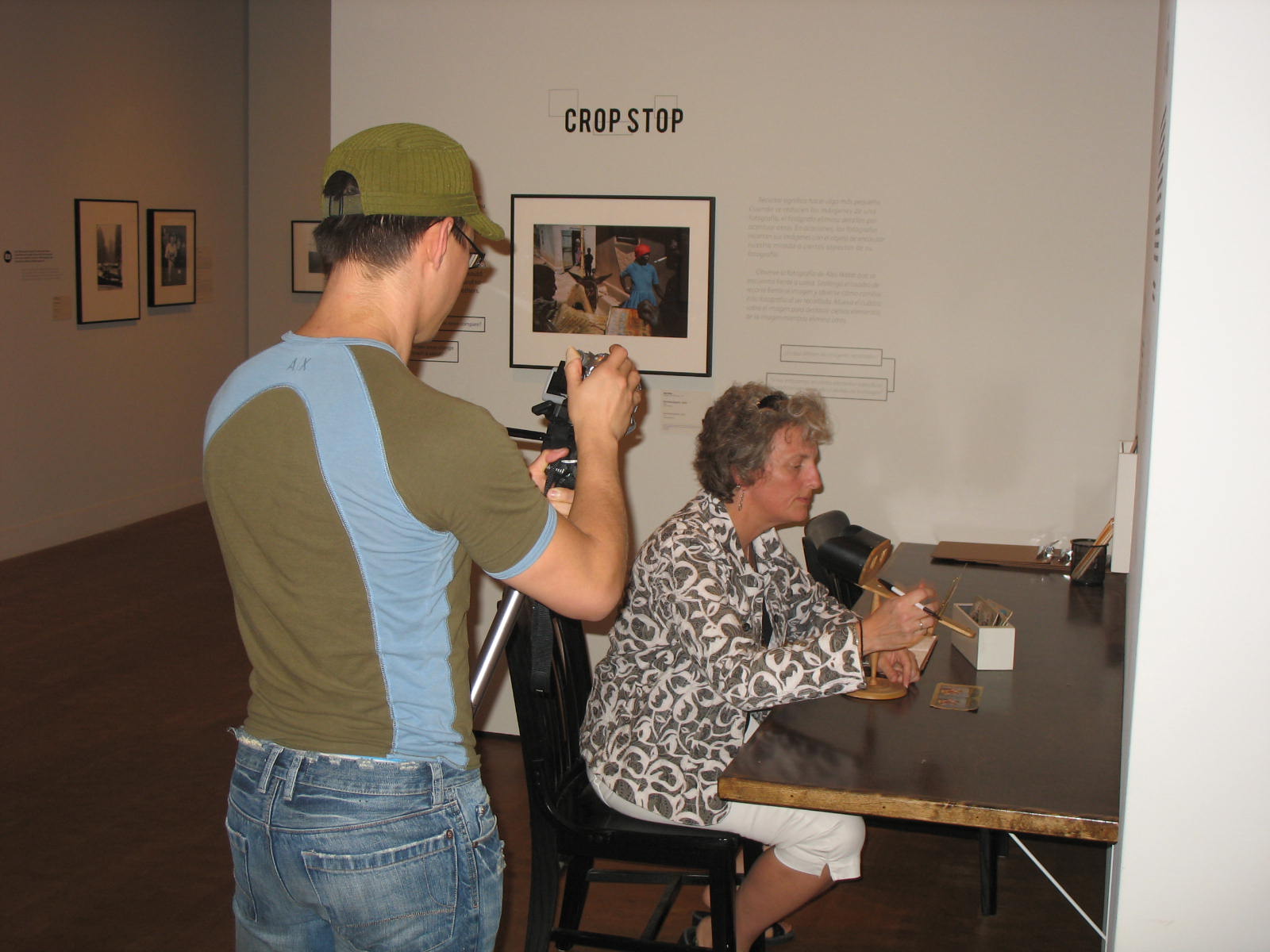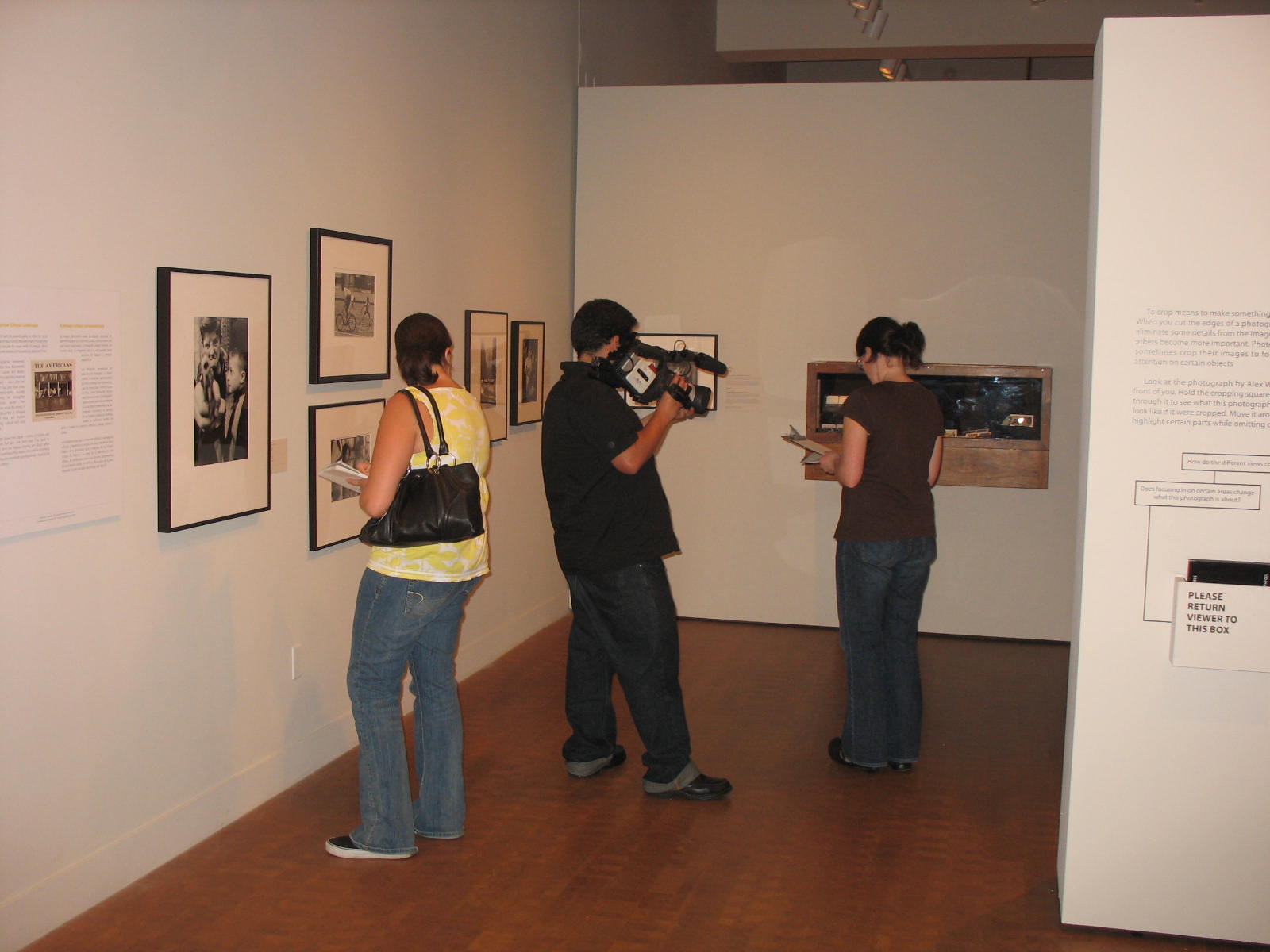By Steve Tokar
Museums: Do you care if your visitors are comfortable and happy? If they are able to read your labels, find the special exhibition or the restroom, sit down when they’re tired? If those with disabilities feel accommodated? If your visitors are inclined to return? Would you like to test a potentially easy and inexpensive way to find out?
We are putting together a panel for the WMA meeting in Portland in October 2010, and would like your help. The idea is to test a simple method of assessing comfort and accessibility — a method that was developed for a workshop at the WMA ’09 meeting and first tested at the Museum of Photographic Arts in San Diego. The results were positive, but now we need to try it out in different venues with different people.
You can do it with half a dozen or so staff members over the course of a couple of days — setting aside about half a day total for each staffer. The only other investment in time is what it would take for (probably) one person to write a brief report on your institution’s experience and, if you wish, present the report at the session. The presenting part is optional!
If you agree to participate, you’ll receive prompt and cheerful guidance the whole way through from the experts who created the tools.
What you would get in return is a detailed snapshot of the ways in which your institution most likely is and is not meeting the basic physical, intellectual, neurological, and emotional needs of your visitors — what works, what doesn’t work, and what might be improved fairly easily.
You might ask: how can a bunch of my staffers tell me what the visitor experience is like at my museum? The secret is role-playing. Yes, we who designed and hosted the workshop were kind of skeptical too, until we tried it.
Come on – what have you got to lose? You can be a part of museum history! But you must act quickly — the deadline for putting the proposal together is fast approaching! Please contact me, Steve Tokar, for more details. Thanks — I look forward to hearing from you soon.










Comments
Cheryl,
Thanks for your comment, which gets at exactly one of the major points we tried to convey at the workshop, and would like to convey at the Portland session: As my colleague Stephanie Weaver likes to say, we're all only a banana peel away from being disabled. As you found to your dismay, EVERYONE is at risk of being "disabled" and in need of "accommodation" at some point or another in the course of day to day life -- from simply being fatigued or forgetting your glasses to something more debilitating and painful such as you experienced.
Your comment indicates that your unfortunate episode has, perhaps, given you deeper insight into the need for making public spaces, including museums, comfortable and accessible for people with as broad a spectrum of physical and neurocognitive abilities as possible. The idea behind this exercise is that museum staff can achieve similar insights without actually having to break limbs, lose vision, or develop ADHD or dyslexia.
I hope you're fully recovered now and feeling better!
Best, -Steve T.
>
I can tell you I learned a few things about navigating around my museum last summer from a wheel chair with a broken right leg and a sprained left foot. So I don't think role-playing was exactly what you'd call it, but great empathy has emerged from my fortunately temporary challenge. We have a little work to do...
Add new comment